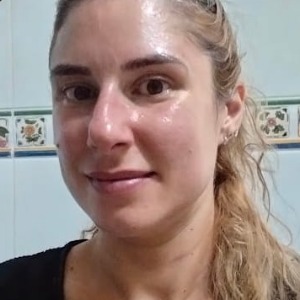Title: Diagnostic indicators of Insomnia in community dwelling older adults clinical accuracy
Abstract:
Abstract: We aimed to analyse Defining Characteristics (DC) and Related Factors’ (RF) clinical acuracy of Nursing Diagnosis (ND) Insônia (NANDA-I 2021-2023) in a community-dwelling older adults. It is a study of diagnostic accuracy, for clinical sentence validation, with a cross-sectional design. This study envolved 90 participants, elderly people of both sexes, aged between 63 and 92 years, registered at the institution, which promotes physical, social and health activities. Elderly people with cognitive, motor and hearing impairment were excluded from the initial sample.
For association analysis (independence hypothesis), we adopted Pearson's chi-square test (X²). Regarding the DC, the analyzes identified evidence of association only with the Occupation variable (Retired and Non-retired), in which the DC “Altered attention” showed dependence. Regarding the RF, there was evidence of association (X²) with the variables “Occupation”, “Marital Status” and “Cohabitants”. Of these, the Marital status variable presented the greatest number of evidences of association, at a significance level of 5% (p value < 0.05), totaling 02 RF: “Caregiver role strain” and “Use of interactive electronic devices”. The Cohabitants variable showed evidence of association with the RF “Caregiver role strain”, and the Occupation variable, with the RF “Dysfunctional sleep beliefs”. Therefore, in the X² test, there was similarity between the RF of the variables Marital status and Cohabitants. Methods: For clinical analysis, we adopted the Latent Class Analysis (LCA), that is a subset of structural equation modeling, used to find subtypes of cases in multivariate categorical data. The DC whose 95% CI was less than or equal to 50% (0.50), both in sensitivity and specificity, or the CI values encompassed 50% (0.50), were evidenced as not being good items, being excluded from the model. A model with adjusted index was performed using the likelihood-ratio test (G²), for analysis of sensitivity and specificity classes, in which the model presented an adequate adjustment (p < 0.05).
Results: Most of the DC presented significant values only for sensitivity. The DC “Increased accidents” and “Nonrestorative sleep-wake cycle” showed sensitivity values of 90% or more; the latter showed statistical significance for specificity as well. On the other hand, the DC “Altered affect”, “Altered attention”, “Early awakening”, “Expresses dissatisfaction with sleep” and “Increased accidents” showed statistical significance only for the sensitivity values. The DC “Insufficient physical endurance” was the only one that did not show good sensitivity, but showed good specificity. Thus, the DC “Altered mood”, “Expresses dissatisfaction with quality of life”, “Expresses need for frequent naps during the day”, “Impaired health status”, “Increased absenteeism” and “Expresses forgetfulness” were excluded from the final model. In the latent class model adopted, the ND Insomnia estimated prevalence was 57.8%. The importance of these findings is due to the potential to help nurses in the accurate identification of ND Insomnia in the elderly, which contributes to an accurate clinical judgment.



